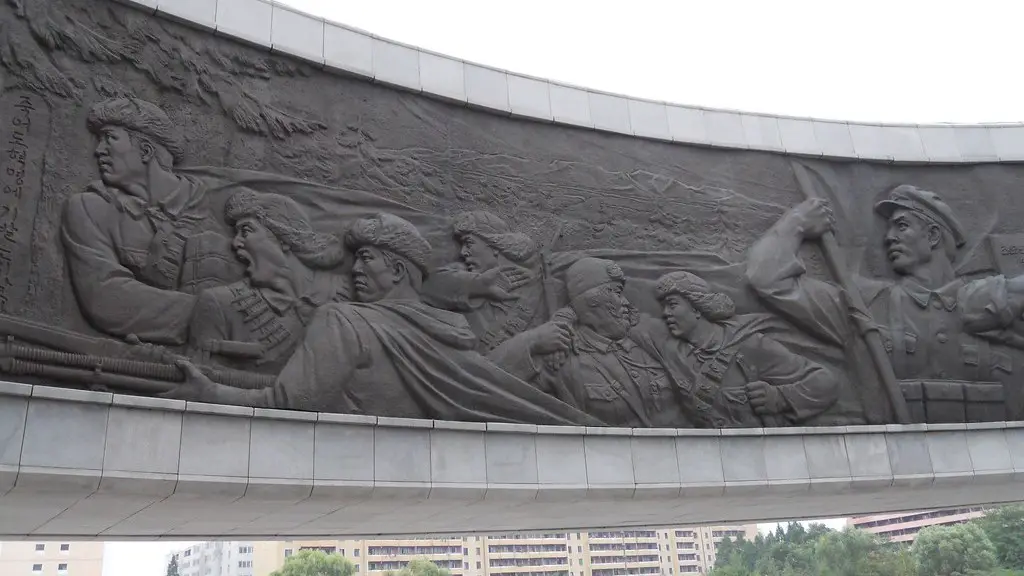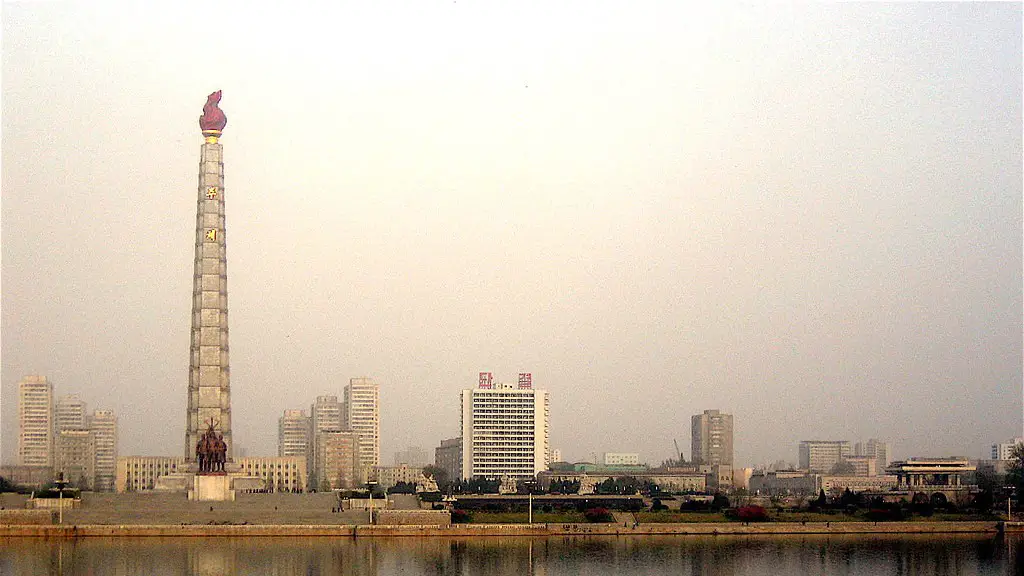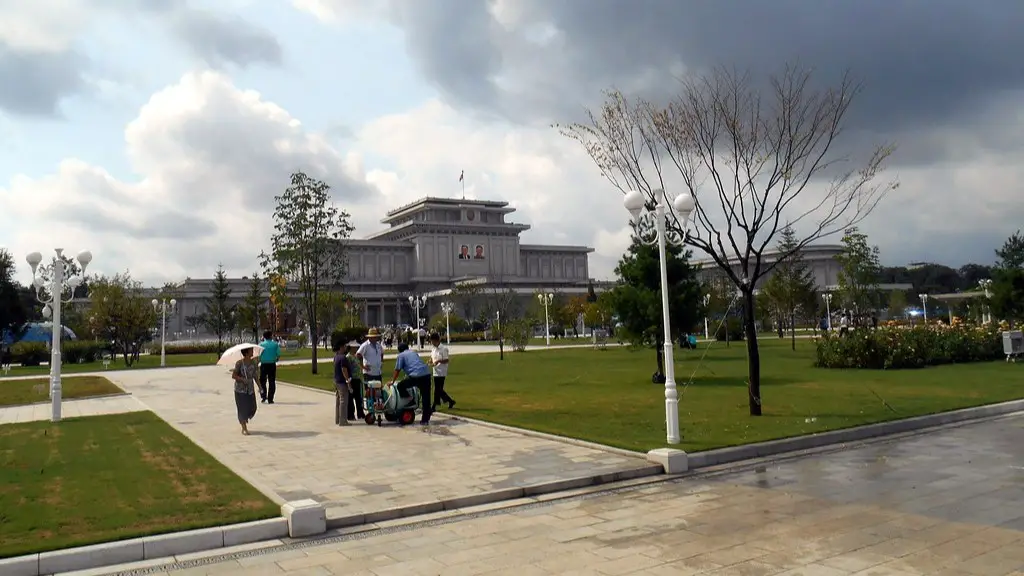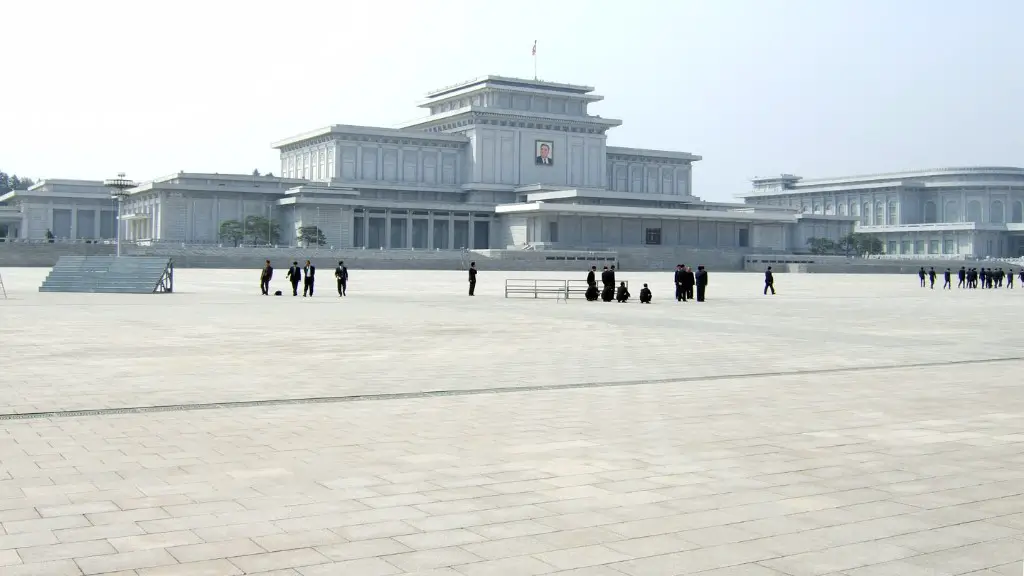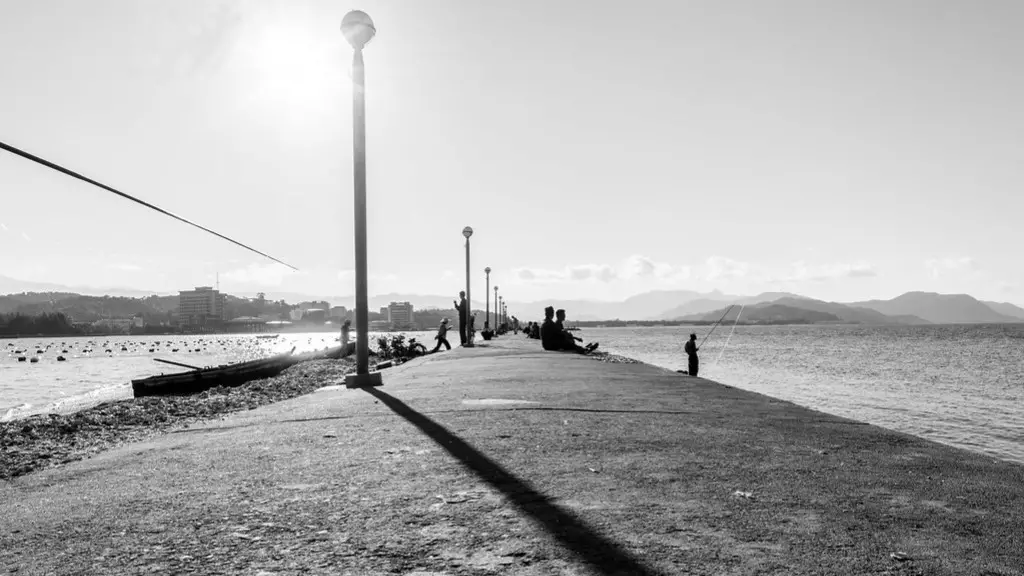North Koreans and Religion
North Korea is officially an atheist state, with religion being completely banned and the government not recognizing the rights of individuals to worship. However, there is some evidence of North Koreans clandestinely practicing traditional Confucianism, Buddhism and Korean Shamanism in their homes or out of the public’s view. These religions are not sanctioned by the government, though some researchers believe that there is an unspoken understanding between many religious people and the authorities who largely turn a blind eye to these activities.
Historically, Korea was an avid practitioner of Buddhism and Confucianism, with the majority of the population being adherents of both religions prior to 1945. Buddhism and Confucianism were two of the most important philosophies in the country before it was forcibly divided into two separate countries. The religion of North Korea underwent a significant transformation from 1945 onwards, as the country moved away from the traditional religions and began to embrace communist philosophy. From its inception, communism sought to eradicate religion and promote atheism as the new state religion.
Under the DPRK government, which is officially an atheist state, public religious activity is strictly forbidden. Article 68 of the North Korean constitution states that “Religious organizations and religious activities are not permitted”. Anyone caught engaging in religious activities can be punished severely, including imprisonment and even execution. Despite these warnings, some North Koreans have continued to practice their beliefs in secret, although the official government stance is still strongly anti-religious.
In 2005, the North Korean government passed a law allowing citizens to practice “religious customs of the Korean people”. While this appears to provide citizens with some religious freedoms, it is believed that the law was largely a ploy for the regime to gain international recognition and to give the impression that religious freedom was allowed in the country. It is unclear whether or not citizens are actually allowed to practice religion and what type of religion is accepted, but many experts believe that the government still strictly controls religious activities in the country.
The North Korean government has not officially endorsed any type of religion, and the belief of most citizens appears to follow the principles of atheism rather than any type of faith. Although some people in North Korea are reported to practice traditional shamanism or ancestor worship in secret, it is difficult to measure the true extent of religious practice in the country, due to the fact that it is not widely accepted by the government.
Despite the government’s refusal to recognize any type of religion, some North Koreans have continued to engage in private religious ceremonies and activities in the safety of their homes. In some cases, Buddhists and Confucians have even organized unofficial public events to publicly display their beliefs. Despite the potential consequences, many North Koreans still refuse to give up their faith, believing that no amount of political pressure can erase the spiritual convictions of the nation.
Traditional Beliefs
Shamanism is one of the oldest forms of religion in Korea, with practitioners believing in the divine power of animistic spirits. Shamanism also exists within Korean Buddhism, with some followers so deeply rooted in the religion that they feel they have no choice but to continue their practice in private, despite the potential risks.
Buddhism is also still practiced in North Korea today, with a number of temples still existing in the country despite the various attempts at destroying the religion. Buddhism has been largely kept alive by the many South Korean Buddhists who have become refugees in the North. In some areas, the practice has even been encouraged and protected by local officials, as it has been seen as a stabilizing force in a country dealing with economic hardship.
Confucianism, which has been a popular philosophy in Korea for centuries, still has some followers in North Korea, particularly among the older generations that were taught the traditional philosophies. Although the practice of Confucianism is not as widespread in North Korea as it is in South Korea, it is still present in some segments of the population.
Korean Shamanism is also still practiced, with shamans playing an active role in helping the local population cope with the many hardships North Koreans face. Shamans are seen as spiritual advisers who can provide guidance to those in need, and are often seen as a source of strength in a country where hope can be hard to come by.
State-Sanctioned Religion
The North Korean government has attempted to create its own form of religion, which many experts refer to as “Juche”. Juche is based on the political philosophy of the late leader, Kim Il-sung, and is discouraged from being labeled as a religion. The main principle of Juche is the belief that the people are the masters of their own destiny, and that each individual has the responsibility to achieve his or her own goals. This ideology has been heavily promoted by the North Korean government, as it can be seen as a tool for controlling the population.
The government also encourages its citizens to show loyalty to the regime by participating in a variety of mass events, such as military parades and state holidays. These events are often seen as religious-like gatherings, where loyalty and devotion to the country is a primary focus. This form of worship allows the regime to receive public support and maintain control.
International Classification
Internationally, North Korea is classified as a non-religious state. Despite the presence of some religious practices, the North Korean government has systematically attacked religious groups and discouraged any type of faith-based activities. For example, in 2006 the North Korean government destroyed the Church of the Saviour, an underground Christian church in Pyongyang. This symbolic gesture clearly showed the government’s disdain for religion, and serves as an example of the lengths the authorities are willing to go to suppress religious activity.
The United Nations has condemned the North Korean government for its severe human rights abuses, including the suppression of religious freedom. This has led to harsh criticisms from human rights organizations and calls for the release of prisoners of conscience, who are often persecuted for their alleged religious activities.
Despite these criticisms, there is still some evidence that traditional religions are still practiced in North Korea. However, due to the oppressive nature of the regime and the strict regulations on religion, it is difficult to determine the exact extent to which religion is practiced in the country.
The Future of Religion in North Korea
The future of religion in North Korea is uncertain. The government has made it clear that it has no intention of budging on its stance towards religion, as it sees religion as a threat to the stability of the country. Despite this, many North Koreans continue to quietly practice their beliefs in the privacy of their own homes, and there have even been reports of public religious activity in some parts of the country.
It remains to be seen whether the North Korean government will change its stance on religion, but it is clear that the people are still strongly attached to their traditional beliefs and won’t easily be swayed by political ideologies. As long as the government continues to suppress religious freedom, it is unlikely that the country will ever truly embrace religion as a significant part of its culture.
Modern implications of Religion
Many experts believe that religion could play a major role in reshaping North Korea, as it could be used as a tool for unifying the people and promoting a sense of national identity. Although the North Korean government appears to be firmly committed to an atheist philosophy, many citizens can still be seen engaging in traditional religious activities.
Religious activities can serve as a source of comfort and hope for the people, as religion can provide guidance in difficult times and help people cope with their emotions. Religion can also be a source of strength for those facing injustice and oppression, providing them with a source of inspiration in their struggle for freedom.
In addition, religion could also help bridge the gap between North and South Korea, as people in both countries share a common religious heritage. In a time characterized by division, religion could be used as a tool to bring people together and foster greater unity and understanding between the two Koreas.
Implications of Religion Outside of North Korea
The international community has long been supportive of religious freedom in North Korea and has encouraged the North Korean government to take steps to ensure religious freedom for its citizens. The UN Human Rights Council has consistently raised the issue in its resolutions and has urged the North Korean government to recognize and protect the rights of its citizens to practice their religion.
Religious freedom is seen as an essential component of a functioning democracy and it is generally accepted that citizens should be allowed to freely practice their beliefs without fear of persecution. This is particularly significant in North Korea, as the lack of religious freedom has been identified as one of the main contributors to human rights abuses in the country.
The international community can also play a role in supporting religion in North Korea by providing aid to organizations that promote religious freedom and by encouraging dialogue between the two Koreas. Such dialogue could help create a platform for understanding between the two countries and lead to peaceful reconciliation.
Conclusion
Overall, it is clear that religion is a complex and sensitive issue in North Korea. Although the North Korean government is committed to atheism, there is still evidence of religious practices in many parts of the country. Despite the potential consequences, some North Koreans continue to practice their beliefs in secret.
North Korea’s stance on religion is seen as a major obstacle to the improvement of human rights in the country, and the international community has called on the North Korean government to recognize and protect the rights of its citizens to practice their religion. There is also an opportunity for religion to serve as a source of unity between the two Koreas, if the proper channels are established for dialogue and understanding.
